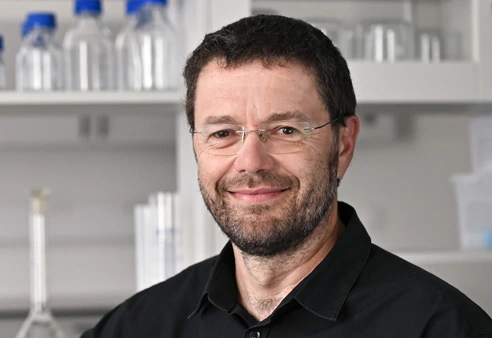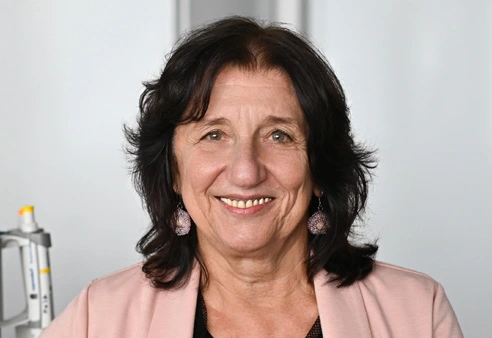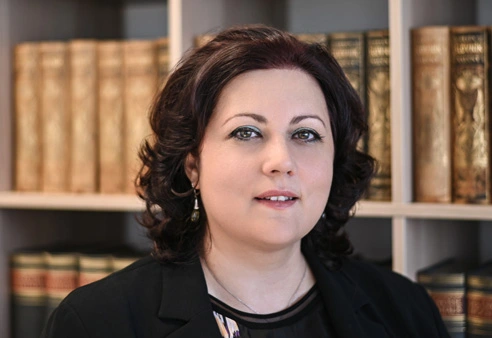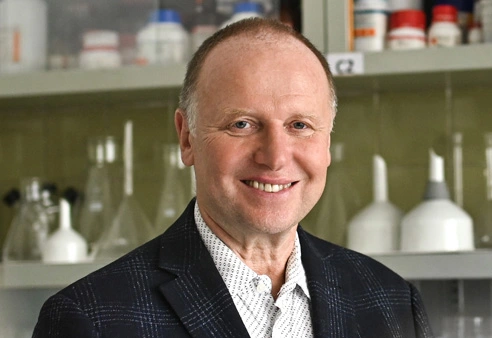He developed extremely sensitive spectrometers, which he still considers to be the origin of his success. He successfully checked for nuclear weapons construction in countries in the Middle East. He led oceanographic expeditions in the Pacific Ocean and his articles have been published in some of the most prestigious science journals, including Nature and Science. Prof. RNDr. Pavel Povinec, DrSc., FRSC was originally inspired by the Curie family. This fascination led him to study physics, in which he still has many plans.
Professor Povinec has dedicated most of his career to researching radioactive isotopes.
“When I first began in science, the situation was very different than it is now. Today we don’t really develop particular detectors. We prefer to buy complete spectrometers, but when I wanted to research something back then, I had to create my own. As my colleagues and I were able to make them quite well and use them to measure low levels of activity, we were able to research various samples and follow the path from atomic and environmental physics to radiocarbon dating of precious cultural artefacts,” Professor Povinec says, explaining the extent of the research in his present portfolio.
Professor Povinec contributed to the discovery of the 11-year solar cycle of radiocarbon in the biosphere and to the creation of the third longest chain of research – 55 years of radiocarbon observation in the atmosphere around Bratislava. The presence of this isotope in live organisms is used in radiocarbon dating.
When studying radioactivity, Professor Povinec gained new insights about the effect of nuclear power plants on their surroundings, about the nuclear fallout from the Chernobyl and Fukushima disasters, the traits of groundwater, isotope variations in seas and oceans, and much more.
His research into radioactivity led Professor Povinec to study samples from the Apollo and Luna space expeditions, foreign and Slovak meteorites, including ones from Mars and the Moon, and recently even the carbonaceous meteorite from Winchcombe, England.
His recent research was the basis for his recent co-authored article in the prestigious journal Science about carbonaceous meteorites that could have been the catalyst of life on Earth due to their amino acid content.
“In 1992, I became the head of the International Atomic Energy Agency’s Marine Environment Laboratories in Monaco. I led 12 big international projects, including researching the radioactive pollution of the environment after nuclear weapons tests in Oceania, where I collaborated with hundreds of colleagues from all across the world,” Professor Povinec recalls.
In 2005, he received the Nobel Peace Prize as a member of the IAEA. After wrapping up his activities at the IAEA, in 2006 he returned to the Faculty of Mathematics, Physics and Informatics of Comenius University Bratislava, where he still works. He and his colleagues founded the Centre for Nuclear and Accelerator Technologies (CENTA) with internationally unique equipment.
At CENTA, among other projects, they work on solving some of the hottest current topics in physics, such as the search for dark matter particles as part of the CRESST international experiment, and research into rare atomic changes within the LEGEND and SuperNEMO experiments.
Professor Povinec’s work is proof that today one can do expert science in Slovakia, and that national borders no longer play a role. The best scientists are members of international research teams, despite being from all across the world.
“We maybe work even more than other people because we don’t stop thinking about science when we’re not at work, and we give it a lot. When an experiment succeeds and results in important scientific work, that’s the cherry on the cake that we work towards. You must find joy in what you do, it should be your hobby,” Professor Povinec says.
He likes to compare a team of scientists to an orchestra. When everyone specialises in something, they create a harmonious group that can produce exceptional results.
Music is in fact one of Professor Pavel Povinec’s major hobbies. These also include culture, opera, skiing and looking after an old family mill in the Záhorie region of western Slovakia.



